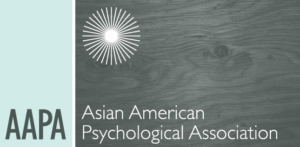Asian American Journal of Psychology | September 2017 Issue
Feature Article & Table of Contents
FEATURE ARTICLE:
Perspectives on Work and Work-related Challenges among Asian Americans with Psychiatric Disabilities
by Uma Chandrika Millner and Min Kim
AAPA would like to congratulate the authors of “Perspectives on Work and Work-related Challenges among Asian Americans with Psychiatric Disabilities,” which has been chosen as the Feature Article of the September 2017 issue. Below is a brief biography of the lead author, Dr. Uma Chandrika Millner, and some reflections on this research experience. We hope that the readers of AAJP will find this Feature and the rest of the issue’s articles to be informative and of benefit to their work. The Feature Article may be downloaded for free here, and the September 2017 issue’s Table of Contents is at the end of this post.
Brief Biography of Dr. Uma Chandrika Millner
Dr. Uma Chandrika Millner works as a Research Scientist at Boston University Center for Psychiatric Rehabilitation and recently joined Lesley University as Assistant Professor. Social justice and multiculturalism form the foundations of her work. Her research interests focus on the community engagement of diverse groups of individuals with psychiatric disabilities with a specific focus on work and employment and Asian mental health.
Reflections from the Lead Author
While exploring ideas for his postdoctoral project, Dr. Min Kim first proposed a replication of my Meaning of Work (MoW) study with Asian Americans with psychiatric disabilities. In response, I recall insisting “Let’s make this as simple and uncomplicated as possible.” The MoW study had a complex design combining consensual qualitative research procedures (CQR) with a participatory component. Anyone who has trained and supervised peers in conducting CQR procedures will know how I felt. With large gaps in the psychosocial rehabilitation literature on Asian Americans with psychiatric disabilities, it can be rather tempting to conduct a behemoth of a project. As a researcher from a minority background, it is really hard to resist this temptation. So instead, I insisted on an unambitious study design with a quick turnaround time. We finally agreed on a study that would build on the MoW project and compare the work perspectives of Asian American and White Americans with psychiatric disabilities. However, “simple” turned out to be far more complicated. We could not find a reliable and valid instrument to meet our needs. On top of that, we could not shake the compelling desire to represent the lived experiences of Asian Americans with psychiatric disabilities without which the study just did not seem complete. Hence, the final version of our project evolved to being a mixed methods study that included instrument development, group comparison, and qualitative inquiry procedures. I suppose some lessons in life are not easily learned. To quote Master Oogway (Kungfu Panda), “One often meets his destiny on the road he takes to avoid it.” The art of simplicity is definitely a work in progress for me . Nonetheless, we are very pleased to be able to share our work and bring this project to the next level. Dr. Kim is already developing the instrument further and we are working on plans to address the community integration needs of Asian American individuals with psychiatric disabilities.
AAJP VOLUME 8, ISSUE 3 | TABLE OF CONTENTS
[Articles available on APA PsycNET]
FEATURE ARTICLE: Perspectives on Work and Work-Related Challenges Among Asian Americans With Psychiatric Disabilities [Free download of article]
Uma Chandrika Millner, and Min Kim
Does Emotion Regulation Moderate the Discrimination-Adjustment Link for Adopted Korean American Adolescents? Yekun Qin, Adam Y. Kim, Jenny C. Su, Alison W. Hu, and Richard M. Lee
Latent Profiles of Acculturation and Their Implications for Health: A Study With Asian Americans in Central Texas.
Yuri Jang, Nan Sook Park, David A. Chiriboga, and Miyong T. Kim
Traumatic Experiences and Associated Symptomatology in Asian American Middle School Students.
Elizabeth Davies-Mercier, Michelle W. Woodbridge, W. Carl Sumi, S. Patrick Thornton, Katrina D. Roundfield, Terrence Lee-St. John, Kristen M.Rouspil, and Jennifer Yu
Help-Seeking and Coping Behaviors Among Asian Americans: The Roles of Asian Values, Emotional Intelligence, and Optimism.
Nina Lei, and John Pellitteri
Searching for Connection—Finding Resolution: A Grounded Theory Analysis of Writings of Korean American Adopted Adults.
Oh Myo Kim, Kevin C.Hynes, and Richard M. Lee
The Response to Rural-to-Urban Migration and Other Life Stressors in Shanghai: Effects on Physical and Psychological Well-Being Among Parents of Young Children
Wen-Jui Han, Judith Siegel, and Liwei Zhang
Read about the last issue of AAJP: https://aapaonline.org/2017/09/19/aajp-vol-8-no-3-…y-milner-and-kim/
For more information on AAJP: http://aapaonline.org/publications/asian-american-journal-of-psychology/.
Contact: Bryan S. K. Kim, Ph.D., Editor, Asian American Journal of Psychology, bryankim@hawaii.edu




